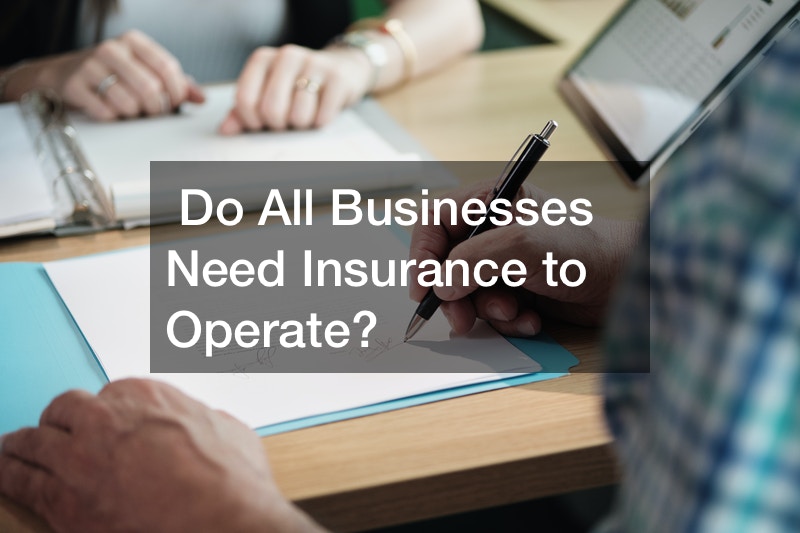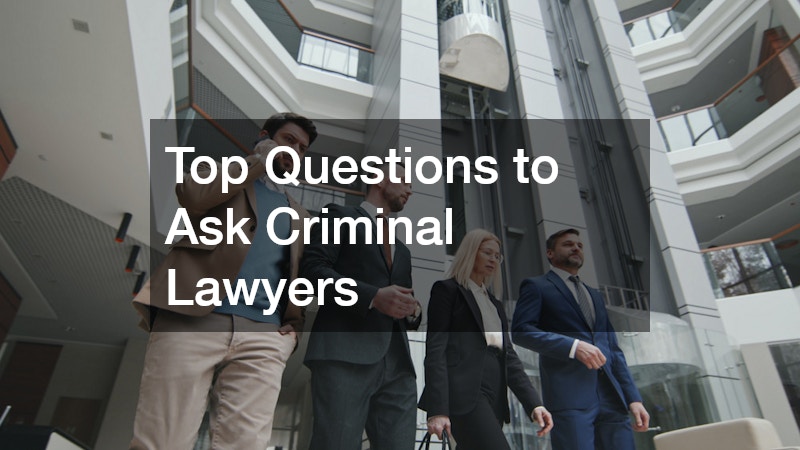Do All Businesses Need Insurance to Operate?

The short answer is no. Not all businesses need insurance to operate. But, businesses need insurance to help cover the expenses of property damages and liability claims. Without insurance cover, a company’s owners may be forced to pay for expensive losses and legal claims out of pocket. This could be a disastrous scenario for business owners, depending on the circumstances. Businesses are, however, obliged to obtain specified forms of business insurance in some states.
Your company’s insurance may make or ruin your business. Theft or fire may be costly if you don’t have the correct insurance. Even though a personal injury claim might leave you struggling to pay legal bills, many small company owners fail to examine their requirements and get enough coverage. It is strongly recommended that you take out business insurance.
Do You Need Business Insurance for Your Company?

Business owners may design their insurance protection to match the unique risks that their company faces by choosing from a number of business insurance covers. Consider the critical areas of your business that need protection when selecting coverage for your company. As stated, it is recommended you take out insurance, but to be sure, answer the following questions for yourself:
- Is there a fair risk that your company may be sued for quite a large sum of money? If someone causes an injury or gets injured on your property, if you have a data breach, if you aren’t as cautious as you should be, or if a product you create or sell is faulty and injures someone, you might be sued.
- Is there any property in your company that you couldn’t readily replace, such as inventory, computers, or other equipment? You may not have to insure your computer if it is your sole company item. However, if your store’s merchandise is worth many tens of thousands of dollars, insurance is necessary.
If you have answered yes to one or both of these questions, get insurance. A Company Owner’s Policy is one of the most prominent business policies (BOP). A BOP is a single policy that covers commercial property, general liability, and business revenue. Combining these coverages might help save money on commercial insurance (another name for business insurance) while also making things easier.
Types of Business Insurance

The following are the main types of insurance that cater to the majority of businesses. More specialized businesses may have additional types of insurance.
- Liability Insurance. This type of insurance covers your responsibilities and legal defense in the event of an accident, injury, or neglect. Home-based enterprises, contrary to common assumptions, need liability insurance since homeowner’s policies do not cover commercial liability risks.
- Vehicle insurance. This insurance protects automobiles used for commercial purposes against damage, as well as damage caused by them.
- Property insurance. If your property is destroyed or damaged by fire, storm, or theft, you will be reimbursed.
- Identity theft insurance. This sort of insurance covers a company’s responsibility in the event of a data breach. It may also cover the costs of alerting and assisting customers who have been the victims of this type of theft.
- Product liability insurance. Manufacturers, distributors, wholesalers, and retailers are all covered under this policy. If a product is hazardous and injures someone, those who create and sell it may be held accountable.
- Business interruption insurance or business income insurance. This type of insurance covers you if you have to relocate or shut down due to a fire or other incident, can assist cover the costs of moving, paying workers, and paying rent.
- Professional liability insurance. This type of insurance protects persons in service vocations against responsibility for carelessness or malpractice while executing their professional tasks.
- Workers compensation insurance. Employees who are hurt on the job are covered by this insurance, which covers missed earnings and medical expenses. Almost all states demand it from firms with more than a specific number of workers.
- Umbrella insurance. This sort of insurance provides compensation for losses that are not covered by other policies. Let’s imagine a client slips and falls in your business and sustains an injury. He then files a claim for $250,000 against your company. If your liability policy cover has a $200,000 maximum, business umbrella insurance might assist you to pay the remaining $50,000.
There are more types of insurance for specific events and more unusual companies that we do not cover here, like commercial flood insurance specifically for flooding or multinational insurance for operations outside of the US, or even surety and fidelity bonds that help parties complete a contract.
Examples of Insurance You May Require
What would be required of you if you were in one of the following jobs? When deciding on the right insurance, answer a few questions:
- Do you have physical premises?
- What type of work do you do?
- Do you have the equipment and how expensive is it?
- Do you have employees and customers, and how many?
- Do you own or create intellectual property?
Let’s take a look at a few random businesses and the types of insurance they may need.
Residential roofing company, electricians, tree removal companies, concrete contracting, window installations, moving company
When it comes to construction or something similar, then liability insurance is something you cannot go without. The reason is that you work with large and heavy objects and machinery in situations where some of your senses, like hearing, may be neutralized. In these situations, you are less aware of what is happening around you and may not see danger coming. Electricians, for example, are at high risk here, since electrical accidents can happen quickly and without warning. This keeps you safe should your electrician suffer from one of these incidents. Liability insurance is applicable to most jobs, because if a customer slips and falls in a business, then that business will be held responsible. Should a worker get injured while performing window installations, you will be covered.
You will be using vehicles, so vehicle insurance is another definite thing to have. Since you own property on which your offices are, you require property insurance, especially in tornado-, hurricane-, and other natural disaster-prone areas. Identity theft insurance is probably something you could do without if your budget were to require cuts somewhere. Product liability insurance is something you may have to look into, but would not be required if you are covered by the insurance from the wholesaler.
Interruption insurance, professional liability insurance, and workers’ compensation insurance are all necessary as you never know when you could be forced into a lockdown again because of a pandemic, or something similar. Workers’ compensation insurance is especially important for jobs where physical labor is at play, like for a moving company or tree removal companies. Professional liability insurance would be required since you are in a service vocation, and people make mistakes.
Optometrists, dog daycare, wealth management advising,
These types of companies are less inclined to cause major physical injuries. Liability insurance may be less important, but not something you should avoid. Customers can still slip and fall and an optometrist can injure someone’s eyes. You should have property and vehicle insurance, but dog daycare may not have a vehicle. Everybody will probably have a building that they work in, for example.
Look at state laws to see where you may be able to pay residential rates for building insurance. House-based business insurance helps firms that operate out of the owner’s home pay for the expenses of property and liability hazards. Consider getting this coverage if you store supplies, equipment, or other commercial properties at your house, or if you have clients dropping by.
Identity theft insurance may be important to wealth management advising companies, as they have a lot of sensitive information at hand. In these companies, insurance to cater for interruptions in business, compensation for workers, and professional liability insurance would still be important. I would recommend umbrella insurance in all cases to cover any shortfall you may have for costs not covered by your insurance company.
Reasons to Get Business Insurance

The following are the reasons why your business needs to have insurance. There are more reasons, but these are the most obviously important ones:
- Business insurance keeps your business alive. What would happen to your company if a natural catastrophe strikes, such as a hurricane or a flood? Insurance protects against physical damage — buildings, equipment, and so on. Without insurance your business would not make it.
- Insurance makes your business look more legit. Business insurance demonstrates to potential clients and consumers that you are a secure investment. You have a mechanism to compensate if something bad happens with the task you provide for them.
- Insurance protects human assets. Company-owned disability and life insurance pays out if you are unable to work due to illness or injury. It provides cash for the acquisition of your stake under a buy-sell contract in the untimely event of your incapacity or death.
- Some contracts require that you have insurance. Whenever it comes to insurance and contracts, there are various factors to consider:
- If you loan money to fund buildings, equipment, or operations, you’ll almost certainly be required to carry insurance.
- You may require insurance if you lease or rent your company space since the landlord’s policy might not even cover it.
- You have no idea what the future holds. Nobody predicted the COVID-19 pandemic, just like nobody can predict the next earthquake, tornado, or even family scandal that puts you out of business. That is why insurance companies make so much money — they get paid even when things are going well.
- Insurance helps you attract and retain the right type of employees. Having insurance has the potential to help employers recruit and retain talented staff. Job candidates prioritize compensation packages that include health, life, long-term care, and disability insurance after compensation. If you don’t provide these benefits, you risk losing a valuable employee to a competitor who does.
- Insurance covers ‘acts of god’. Any accident or occurrence not due to human hands is referred to as a ‘Act of God’ in insurance jargon. Floods, tornadoes, hurricanes, and lightning-caused fires all qualify. All-risk and peril-specific insurance are two forms of casualty and property insurance that protect against such losses.
There are stories of companies that did not have insurance and things went well. There are also stories of companies that canceled their insurance and went out of business due to an unforeseen event. Insurance is the one thing you cannot go without.
Purchasing Insurance

Contact an insurance agent that focuses on insuring small companies to get business insurance. Getting a company owner’s policy, which combines many types of business coverage into one policy, may save you money.
It makes sense to shop around, as it does with most things. However, if you want to save money, don’t go with the lowest insurance or forego certain kinds of coverage. If you have to file a claim, basic coverage may not be enough to protect you. Worse, many plans contain ‘coinsurance’ terms that may only pay out a portion of your claim if the insurance provider thinks you are underinsured.
Make sure you understand what your insurance would cover, and if you have any questions, contact your representative for clarification. When it’s time to renew your policies, compare them to the competition to ensure you’re still receiving the best value for your company.
If you do need to submit a claim, be careful to give full and correct information, file it as soon as possible, and seek legal assistance if your insurance claim is refused. You can help guarantee that your company gets the coverage it needs when it needs it by assessing your risks, staying updated with regards to the claims process, and selecting proper coverage.
Remember as well, that your insurance needs will change as your business grows. Keep that in mind and purchase insurance that is adaptable if you have the option. Some companies grow so quickly that they may have to update their insurance monthly. Do not let that get away from you.
With insurance, you decide if you are willing to carry any risk or not. In the end, it may be about monthly premiums versus the percentage of risk you are willing to carry. As a rule, it is better to have comprehensive insurance, but only you can make the right decision. I hope this article helps you make that decision.



